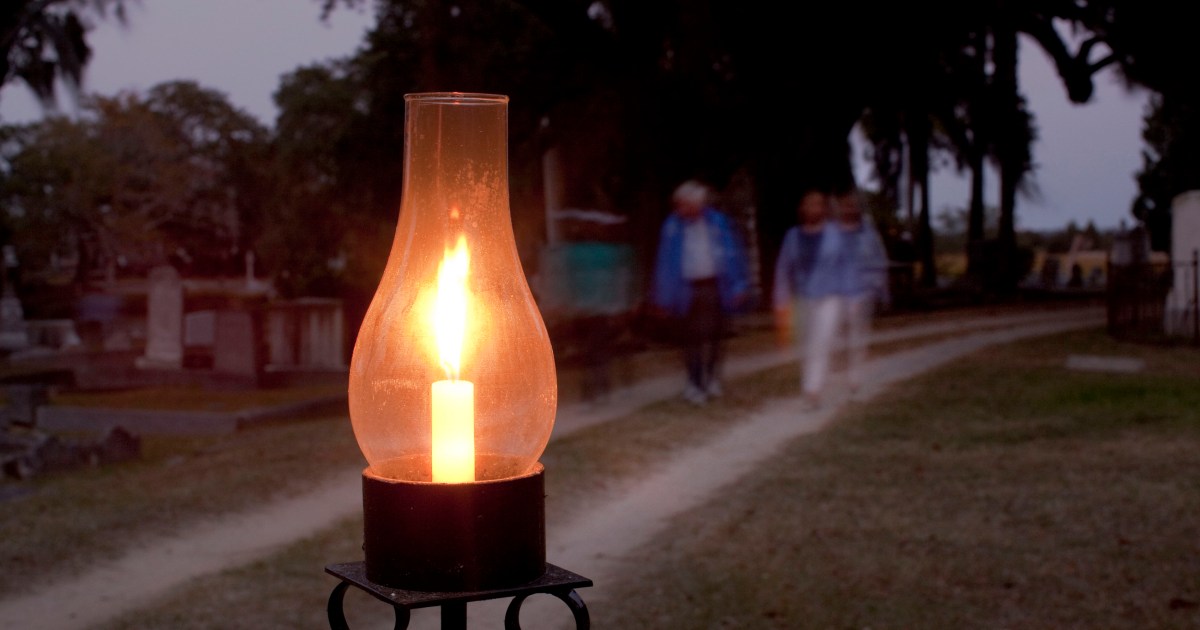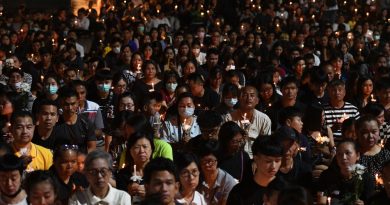On the death of my maternal grandmother: an anti-obituary | Opinions
On October 18, Colin Powell – former United States secretary of state and war criminal – died of coronavirus-related complications.
The following day, as I was busy writing an article for Al Jazeera titled “Stop being polite – Colin Powell was a killer”, my maternal grandmother Anne died of coronavirus in Florida.
And as with Powell, I felt no need for eulogies.
My grandmother, of course, had wielded considerably less power during her time on earth than had the late statesman. She had not helped fuel the deaths of hundreds of thousands of people in Iraq, or presided over the 1989 pulverisation of the impoverished Panamanian neighbourhood of El Chorillo – to the extent that local ambulance drivers had begun referring to the area as “Little Hiroshima”.
She had, however, managed to inflict significant psychological, as well as bodily, injury on the persons inhabiting her own little world.
During my mother’s youth, for example, a perceived transgression by her or any of her four siblings could result in all five being made to march in a circle as Anne flayed them with a dog leash.
My mom’s earliest memory is of having a bloody nose courtesy of Anne’s fist, while an incident involving a piggy bank that had been flung on the floor had occasioned a belt whipping that rendered it impossible to sit without a pillow for several days.
When her children were not required to serve as live targets for sadistic urges and verbal abuse, they were left largely to fend for themselves, as Anne pursued relations with often underage men. My mother moved out of my grandmother’s house at age 17 to attend university – a parting Anne marked by biting my mom on the nose and holding on with her teeth.
The last contact I had with Anne was at age 11, at which point she had become overzealously religious. This apparent attempt at soul-cleansing did not prevent her from shoving her elderly aunt down a flight of stairs and breaking her hip – an episode prompted by said aunt’s reluctance to continue subsidising Anne’s habit of manically buying items off of the television.
Nor would Anne’s self-proclaimed spontaneous proximity to God stop her from threatening her own daughter – my mother’s sister – with a gun. As I note in my book Exile: Rejecting America and Finding the World, the firearm was confiscated by authorities in Florida but was quickly restituted to my grandmother, thereby upholding US citizens’ inalienable rights to militarised sociopathy.
When I received the news of Anne’s demise-by-coronavirus in Tallahassee, I was in the magical cobblestoned town of Gjirokastër, Albania – the latest stop in my continuous global meanderings that had commenced nearly two decades earlier when I abandoned the United States in search, I suppose, of places and people that felt more like home than my own alienated homeland.
There was a certain societally induced expectation, naturally, that I should feel something at the passing of such a close relative, and I watched on Facebook as members of my mother’s family initiated the requisite commemorative spectacle to rehabilitate Anne in death.
And yet I felt nothing.
In The Nature of Grief: The Evolution and Psychology of Reactions to Loss, psychology professor John Archer quotes an 1843 letter from Charles Darwin to a grieving cousin in which he asserted, “Strong affections have always appeared to me, the most noble part of a man’s character and the absence of them an irreparable failure.”
Darwin went on to urge his cousin to console himself with the thought that “your grief is the necessary price for having been born with … such feelings.”
But should we really feel like irreparable failures as human beings for failing to feel “strong affections” for recently departed folks who hardly qualified as human in the first place?
In the case of Colin Powell, it is more or less patently ludicrous to grieve bellicose politicians who have inflicted mass grief worldwide. In my grandmother’s case, meanwhile, I felt far more inclined to grieve not her but rather the sick society that cultivates such individuals – and the country that prefers to devote resources to dropping bombs on and otherwise traumatising other human populations than to, say, providing adequate mental health and other health services to its own population.
Why not dispense with the persistent notion that the dead must be respected at all cost – even if they did nothing to respect the living when they were alive? An honest reckoning with individual legacies – which necessarily entails an appraisal of the societal contexts in which they occur – is not only more ethically coherent than hagiography, it may indeed provide better and sounder closure than the summoning of disingenuous and embellished emotions.
And while it is no doubt easier said than done, it might sometimes suffice to simply say: “Good riddance”.
The views expressed in this article are the author’s own and do not necessarily reflect Al Jazeera’s editorial stance.





